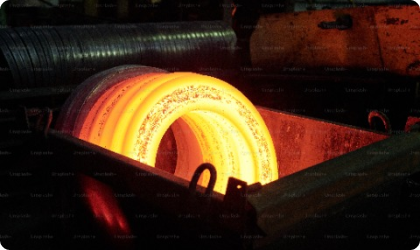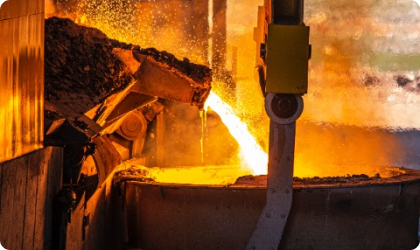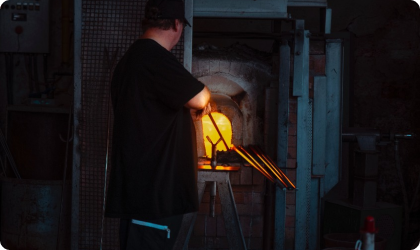METAL STRESS RELIEVING: An Essential Process for Optimizing Part Performance
Stress relieving is a heat treatment technique commonly employed across various industries. This umbrella term encompasses a wide range of processes but at its core, aims to address the internal stresses present in metal parts.
Understanding the Basics:
Nature of the Process:
- Nature of the Process: Metal stress relieving typically involves heating a part to a temperature where its yield strength drops significantly. At this point, internal stresses have the freedom to alleviate.
- Temperature Significance: Optimal results are achieved when parts are exposed to higher temperatures for longer durations. This ensures lower internal stresses. Yet, these temperatures must always be below the threshold at which the metal’s phase changes, especially in steel.
- Diverse Material Treatment: This process caters to a plethora of materials from plastics, steel, to non-ferrous metals like aluminum and copper alloys. Non-ferrous materials require relatively lower temperatures, such as 200°F for plastics and 900°F for copper alloys.
- Steel and Iron Treatment: When focusing on steel and iron, typical stress relieving temperatures span from 1000°F to 1300°F. The treatment is always conducted below the temperature range where the austenite phase starts to appear. For minimal internal stresses, temperatures near 1300°F are optimal, a process known as sub-critical annealing due to its proximity to the austenite formation point.
- Surface Considerations: Using open fire furnaces for metal stress relieving can lead to surface oxidation, ranging from mere discoloration at lower temperatures to a fine scale at sub-critical temperatures. If a pristine surface finish is desired, oxidation can be prevented by employing a nitrogen atmosphere or opting for vacuum stress relieving. These processes’ costs differ significantly, making early communication crucial before settling on industrial heat-treating services.

Recommendations and Key Points from ThermTech:
- Minimal Distortion: Stress relieving typically causes little to no distortion. However, long slender components or heavily cold-worked plates may require special attention.
- Post-Process Operations: Operations like shot blasting after stress relieving introduce compressive stresses on the material surface, potentially causing distortion.
- Material Specific Considerations: Cast materials with low ductility or designs incorporating stress risers can have heightened cracking risks during the heating phase of stress relief. Such materials may demand a slower heating rate to the target temperature.

In essence, stress relieving, whether applied to steel, aluminum, or any other material, provides essential benefits. These range from reduced internal stresses, improved mechanical properties, enhanced surface finishes, and prolonged service life. By understanding the nuances of this process and tailoring it to specific part requirements, industries can ensure optimized performance and longevity of their components.


